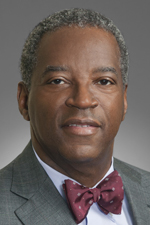

Ralph is a native of Charleston, South Carolina, where he grew up as one of 12 children on the eastside. He attended various segregated public schools, graduating from C. A. Brown High School with honors in 1966. At Brown, he and some friends formed a social club called the “Corsairs,” a group of nine guys mentored by its then 22-year old teacher/advisor, Jim Clyburn; among that nine was the first African-American to graduate from the Citadel, and the first African-Americans from Charleston to Graduate from Harvard and from Yale. In the summer of 1966, Ralph was introduced to a Yale Admissions officer by a then guidance counselor, Lucille Whipper; the Admissions officer invited Ralph, who was about to attend Morehouse College, to participate in a new program at Yale for talented youth from low income backgrounds called the Transitional Year Program (“TYP”). He accepted a position in TYP along with 42 other students and, upon completion of the year, he was one of the four students admitted to Yale College on a full scholarship.
Ralph enjoyed and participated in the stimulating academic environment at Yale, and he also became a campus activist, participating in the establishment of the first African-American Studies Major at a leading American institution. He was also the leader of the Black Student Alliance at Yale (“BSAY”) during the tumultuous period known as “May Day 1970,” when New Haven, Connecticut and Yale were the site of a major murder trial involving the Black Panther Party, and a series of protests against the Vietnam War. The BSAY played a crucial role in keeping the peace on the campus, generating support for the conduct of a fair trial for the Black Panthers, and encouraging Yale to embrace its civic responsibilities to the New Haven Community.
Ralph graduated from Columbia University School of Law in 1976, having served as an Editor of its Human Rights Law Review, and studied with many outstanding students, including the woman he would marry, Leslie Demus, and Eric Holder, the first Black Attorney General of the United States. Ralph has practiced law for over 40 years. He is a Retired Partner in the international law firm of Norton Rose Fulbright, formerly Fulbright & Jaworski, and remains Of Counsel to that firm, specializing in Labor and Employment law, and Civil litigation, and has represented clients in courts and administrative agencies throughout the United States. Ralph has perennially received the top rating from Martindale Hubbell, the leading rating agency for attorneys, and has been recognized by his peers as a “Super Lawyer” in the New York area. He has also held leadership positions in important committees of the Bar, such as the Disciplinary Committee of the First Judicial Department in New York, and the Merit Selection Panel for Magistrate Judges in the Southern District of New York. He also serves as the court appointed Receiver tasked to recover, preserve and distribute the assets of Ascot Partners, one of the feeder funds which lost over $1 billion in the Madoff Ponzi Scheme. He has recovered and distributed almost $300 million to Ascot investors.
Ralph is politically active. He served as a Senior Advisor to the Howard Dean Campaign for President in the 2004 election cycle, and worked on Dean’s election as Chairman of the Dawson Bio - Personal.docx - 2 - Democratic National Committee (“DNC”) in 2005. He was appointed to the DNC by Dean, his college roommate, and assisted Dean in the implementation of his acclaimed “50 State Strategy” to rebuild the Democratic Party, which helped the party gain control of both Houses of the Congress and the Presidency in the 2008 election. As a member of its Rules and Bylaws Committee, he played a key role in the decision to designate South Carolina as one of the four states to hold early primaries in the Democratic Party’s Presidential election process. He was a “Super Delegate” to the Democratic National Convention from 2008 to 2016 , and appeared as a DNC member on numerous programs such as the Lehrer News Hour, the CBS Evening News, and MSNBC. Ralph played a prominent role in resolving disputes over the effect of primaries held in Florida and Michigan in violation of Democratic Party Rules. He endorsed Senator Barack Obama for President and served as Chair of the African-American Leadership Council of the Democratic National Committee in the 2008 election cycle.
Ralph and his wife have two adult children, and he and his wife live in New Rochelle, New York.
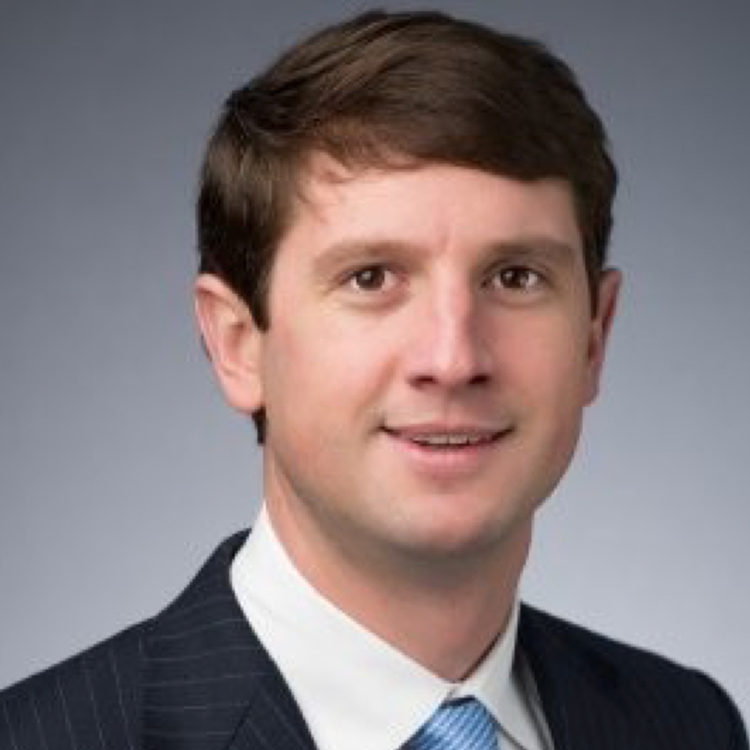

C. Edward Rawl, Jr. is a Senior Counsel at The Boeing Company in its Labor, Employment & Benefits Law Group. He works on a wide range of labor and employment matters related to strategy, counseling and advice, union avoidance, and litigation across the Boeing enterprise with a geographic focus in Alabama, Arizona, Florida, South Carolina, North Carolina, Mississippi, Louisiana, Texas and West Virginia, supporting Boeing Commercial, Defense, and Services businesses. Prior to joining Boeing in 2016, Edward was a partner at Fisher Phillips LLP in Columbia, South Carolina.
Edward is a member of Boeing’s 20-member Racial Equity Task Force advising the Company’s CEO and Executive Counsel on matters related to diversity, equity, and inclusion, driving systemic improvements across the enterprise.
Edward received his undergraduate degree from the University of South Carolina and his law degree from the University of South Carolina School of Law. He is "AV" rated by Martindale-Hubbell, received the Compleat Lawyer Award from the University of South Carolina School of Law, and has been regularly selected for inclusion in South Carolina Super Lawyers – Rising Stars.
Edward is a past member of the ABA Board of Governors (2018 - 2021). Edward previously served as the ABA YLD Membership Director, Vice Director of Membership, Member Service Project Coordinator, District Representative for SC and the USVI, and liaison to the Standing Committee on Membership. Edward previously chaired the Employment and Labor Law Section of the South Carolina Bar.
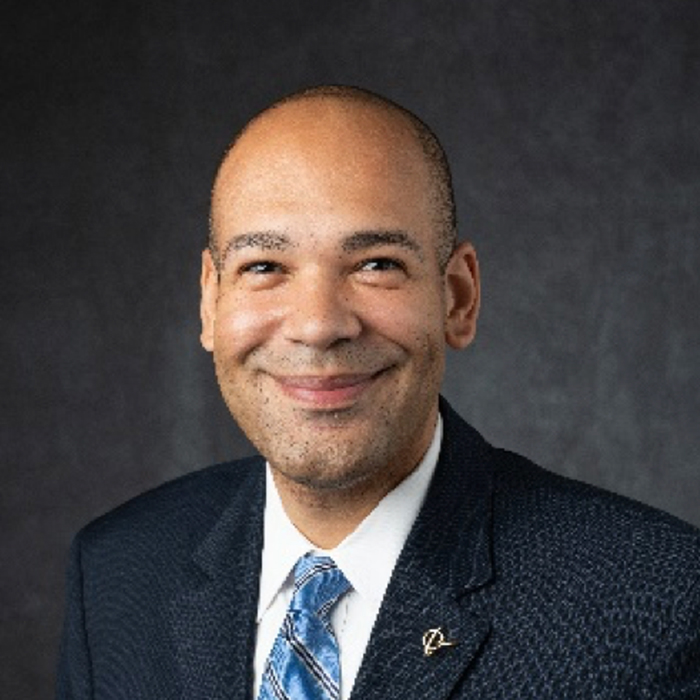

Tommy Preston, Jr. is the vice president of Ethics at The Boeing Company, where he leads a team of global professionals focused on articulating, amplifying and embedding the company’s values across the enterprise. The Ethics organization also ensures efficient and trusted reporting mechanisms and a strong anti-retaliation policy; works with senior leadership to foster a speak up culture through messaging and employee engagement; and embeds ethics advisors across Boeing business units and sites to identify risk areas, reinforce expectations of ethical behavior and provide bespoke guidance to employees.
Previously, Preston served as director of national strategy and engagement and government operations, where he was responsible for protecting and advancing Boeing’s interests, competitiveness and reputation, and provided counsel on various regulatory and public policy issues. He also supported myriad business unit programs, including 787, Space Launch System, and Missile and Weapon Systems across multiple sites.
Preston is also co-chair of the company’s Racial Equity Task Force, and collaborates with stakeholders to advance key measures of equity, diversity and inclusion within the company.
Prior to joining Boeing, Preston was in private practice where he represented companies and organizations, including Boeing, on economic development, public policy, compliance and regulatory matters. He also worked with clients to develop and implement programs to help minimize risk and ensure compliance with state and local regulatory and ethics requirements.
Preston graduated with a degree in political science from the University of South Carolina and earned his Juris Doctorate from the University of South Carolina School of Law. As an undergraduate student, Preston was a Bill and Melinda Gates Millennium Scholar and
served as student body president. Preston is the recipient of the prestigious Algernon Sydney Sullivan Award, the highest honor awarded to a University of South Carolina student. Preston remains active at his alma mater. He served a two-year term as president of the university’s Alumni Association. He was the youngest and first person of color in the university’s history to serve in this position. He also represented alumni as a voting member of the university’s Board of Trustees.
Preston is an active member of the American Bar Association (ABA) where he served as national chair of the ABA’s Young Lawyers Division, representing more than 200,000 young and early career lawyers from across the United States. Preston is also a fellow of the American Bar Foundation and on the Board of the American Bar Endowment.
Preston and his wife, Felicia, are the proud parents to their three children: Charlotte, Benjamin and Asa.
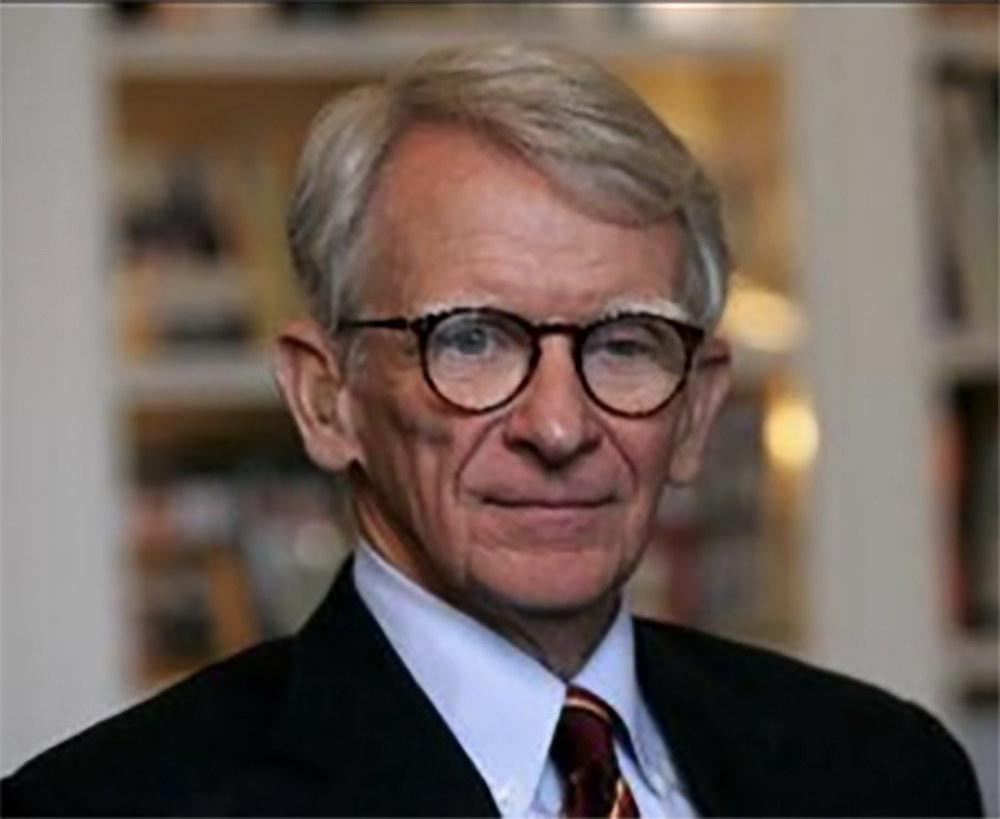

Joe Riley is widely considered one of the most visionary and highly effective governmental leaders in America. He served ten terms as Mayor of the City of Charleston from 1975 to 2016.
He graduated from The Citadel in 1964 and the University of South Carolina Law School in 1967, and served in the S.C. House of Representatives from 1968 to 1974.
In his time as Mayor, Charleston transformed from a decaying urban center to a top cultural destination. He is known for his innovative redevelopment projects, carefully crafted to add to the overall quality of life in the city. He diffused racial tensions by working closely with the African American community. The crisis leadership that he demonstrated after Hurricane Hugo in 1989 gained national praise for getting the city quickly cleaned up and running.
Today, Riley is professor of American Government and Public Policy at The Citadel and Executive in Residence at the Joseph P. Riley, Jr. Center for Livable Communities at the College of Charleston. He is a Distinguished Fellow of the Pew Charitable Trusts, working on smart solutions for flood-prone communities and the national government, and the first Distinguished Visiting Fellow at the Urban Land Institute. Riley is also currently working to build the International African-American Museum, a $100 million project scheduled to break ground in 2019.
Under his leadership, Charleston increased its commitment to racial harmony and progress, achieved a substantial decrease in crime, experienced a remarkable revitalization of its historic downtown business district, supported the creation and growth of Spoleto Festival USA, added significantly to the City’s park system including the highly celebrated Waterfront Park, developed nationally acclaimed affordable housing, and experienced unprecedented growth in Charleston’s size and population.
Mayor Riley led a city government with an impressive record of innovation in public safety, housing, arts and culture, children’s issues, and economic revitalization and development. The City of Charleston is recognized as one of the most livable and progressive cities in the United States.
Riley has held numerous national leadership positions and received many awards and distinctions. President Barack Obama presented him with the 2009 National Medal of the Arts for cultivating Charleston’s historic and cultural resources to enhance public spaces, and for revitalizing urban centers throughout the U.S. as the founder of the Mayors’ Institute on City Design. The American Architectural Foundation and the U.S. Conference of Mayors in 2010 created the Joseph P. Riley, Jr. Award for Leadership in City Design in his honor. He received the American Society of Landscape Architects’ 2004 Olmsted Medal; Governing Magazine named him their Public Official of the Year in 2003 for “leveraging the power of urban design and civic space.” The American Architectural Foundation honored him in 2002 with the Keystone Award for exemplary leadership to those who use architecture to transform their communities. He was named one of the 2004 Giants of Design by House Beautiful Magazine and received the first U.S. Conference of Mayors President’s Award in 2000 for outstanding leadership.
In 2000, he was honored as the first recipient of the Urban Land Institute’s J. C. Nichols Prize for Visionary Urban Development, and also in 2000, was honored with the Arthur J. Clement Award in Race Relations for his battle to remove the confederate flag from the S.C. Statehouse. Riley received the 1994 Thomas Jefferson Award for “his exceptional leadership and ‘Jeffersonian’ vision in redefining the promise and, ultimate the future, of our nation and its cities.”
Mayor Riley’s current project, the International African American Museum, is the culmination of his lifelong passion to commemorate Charleston’s significant role in the slave trade and the history of this country. It is scheduled to open in fall of 2022.
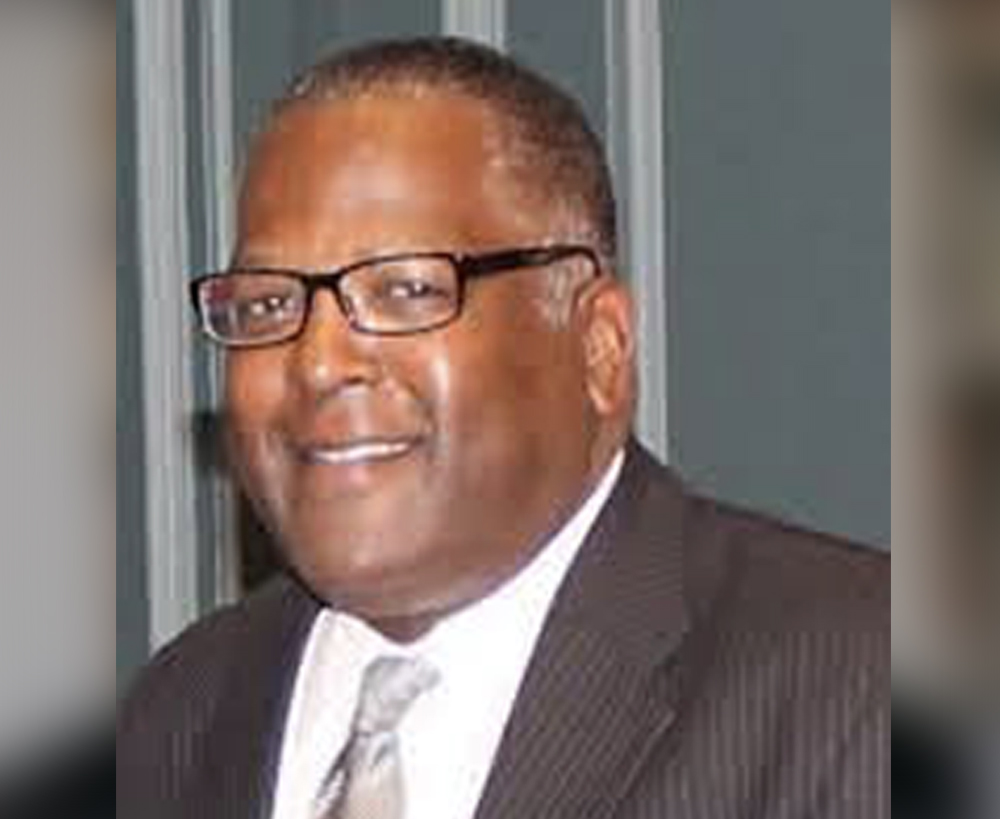

At 29 years old in 1999, Benjamin was appointed to Governor Jim Hodges' cabinet as director of the state's second largest law enforcement agency, the Department of Probation, Parole and Pardon Services.
Mayor Benjamin has continued his service to the community in serving on numerous boards for nonprofit organizations such as the Columbia Urban League, Benedict College, the Greater Columbia Chamber of Commerce and as a founding board member of the Eau Claire Promise Zone. He also served as a founding member of Choose Children First and chief legal counsel for Midlands Crimestoppers.
In 2009, Benjamin drew national attention by representing prominent radio host Tom Joyner and securing a pardon for Joyner's great uncles wrongfully convicted in the death of a 73-year-old Confederate veteran and executed in 1913. In a landmark decision, the South Carolina Board of Paroles and Pardons voted unanimously to grant the posthumous pardon, the first for South Carolina in a capital case.
Reelected by a 30 percent margin in November 2013, Mayor Benjamin's administration has been characterized by his firm belief in Columbia's potential and intense focus on job creation. In his first term alone, his leadership helped cut unemployment in the metro by roughly half and secured billions of dollars in new regional capital investment in the midst of a national recession.
Combined with the rebirth of Main Street, these accomplishments have drawn national attention and accolades including his being awarded an Aspen Rodel Fellowship and receiving an Honorary Doctor of Humanities from Francis Marion University. He has twice been named to The Washington Post's "The Root 100 List” (2011 and 2013) as well as the 2014 GRIO 100 and was honored to receive a 2014 Triumph Award from the National Action Network as their 2014 Public Servant of the Year.
As part of his commitment to fostering a world class police department in the City, Mayor Benjamin introduced the “Justice for All” initiative in 2014, which implemented new training, competitive pay, diverse representation and community engagement to strengthen the foundation of trust and accountability that exists between our communities and law enforcement agencies.
President Obama’s administration has also commended Mayor Benjamin on his work on behalf of My Brother’s Keeper (MBK). The city’s MBK efforts, in addition to Mayor Benjamin’s leadership, have led to Columbia being seen as a nationwide leader in implementing and upholding the missions of the program.
Mayor Benjamin was asked to speak at the 2016 Democratic National Convention, where he talked about the importance of instilling in his daughters that they can do anything they set their minds to, even becoming President of the United States.
In December 2017, Mayor Benjamin initiated city ordinance 2017-109, which banned the attachment of bump stocks and trigger cranks in the City of Columbia, making Columbia the first city in the nation to do so. He is a firm believer in common sense bipartisan leadership and endeavors to implement policies and programming that provide the best course of action for city residents.
In addition to serving as Mayor of Columbia, Mayor Benjamin also served as the 2018-2019 President of the U.S. Conference of Mayors and as Chairman for Municipal Bonds for America. He formerly taught a class at the University of South Carolina Honors College and Columbia College titled “Columbia, South Carolina: Building a Great City” and is a member of Kappa Alpha Psi and Sigma Pi Phi fraternities.
Mayor Benjamin is married to the Honorable DeAndrea Gist Benjamin. The two are the proud parents of daughters Bethany and Jordan Grace.
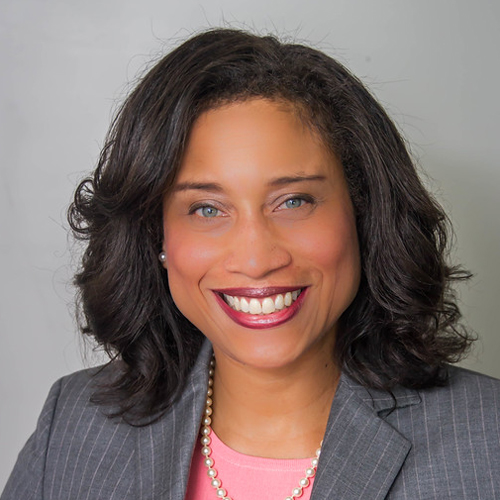

Melissa Maddox-Evans, Esq. has over fifteen years of experience in the affordable housing industry and over twenty-eight years in community development initiatives. She received her B.A. from Georgetown University and her law degree from the University of Georgia. She served as both a Director and as General Counsel for The Housing Authority of the City of Charleston and as CEO of the Charleston County Housing & Redevelopment Authority. She is currently the Executive Director/CEO of The Housing Authority of the City of Annapolis, MD. Ms. Maddox-Evans helped form The Charleston Redevelopment Corporation, an affiliate nonprofit which is developing a community land trust for the Charleston region as a method to preserve land for affordable housing and served as the first President & Chair of its Board of Directors. She is a national speaker on affordable housing and fair housing laws, non-profit/corporate governance and is an advocate for domestic violence victims, disability, education and social justice issues and was a featured speaker for TEDxCharleston. She helped form the Social Justice Racial Equity Collaborative of Charleston which promotes racial equity and social justice policies and programs.
She has received several awards from housing, government industry groups for her leadership and advocacy. Prior to working in the housing industry, she spent several years working in early intervention programs for developmentally delayed children and as a grassroots organizer for non-denominational churches throughout the Southeast. Ms. Maddox-Evans is believes in being an active in her community and has served on several boards and commissions.
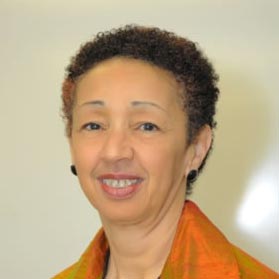

Teaching Faculty
Millicent Ellison Brown, Ph.D. is a native of Charleston, SC who credits her parents' involvement in mid twentieth-century civil rights initiatives for her lifetime commitment to social and economic justice.
She received her B.A. In History from the College of Charleston, an M.Ed. In Counseling from the Citadel and a Ph.D. In U.S. History from Florida State University. Brown recognizes a transformative year of study at Howard University (D.C.)) for grounding her academic career in the intersections of race, gender and class.
Co-Founder/Project Director of the Somebody Had to Do It Project, identifying "first children", like herself, to desegregate all-white schools; Brown encourages ongoing examination of the multiple dynamics of using youth to create social change. She explores these and other issues reflected in contemporary policy-making and practice. Brown has held staff and faculty positions at the College of Charleston, Avery Research Center for African American History and Culture, Claflin University, North Carolina A and T State University, Hofstra University, Guilford College and Bennett College for Women. She is a board member of the SC American Civil Liberties Union, and a member of numerous organizations supporting quality public education for all students. She consults with local, state and national historical institutions on issues of interpretation and inclusion.
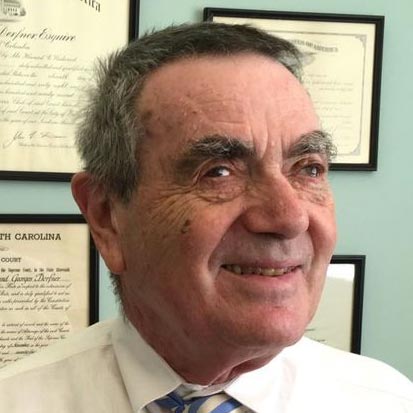

eaching Faculty
Armand Derfner, LL.B. has practiced civil rights law and constitutional law for more than a half century. He has tried civil and criminal cases, argued appeals in courts ranging from Justice of the Peace and Magistrate’s Courts to the Supreme Court of the United States. He has represented community organizations, drafted legislation, testified in Congress, taught and written about law, been held in contempt several times and been arrested once, in the middle of a courtroom. He has never been disbarred but he was once accused in open court (falsely, he says) of threatening to put a bullet in the back of a client’s head.
He received a National Merit Scholarship the first year they were offered. He has an A.B. from Princeton University (1960), where he received the Koren Prize in History and a Woodrow Wilson Foundation Fellowship. He has an LL.B. from Yale (1963), where he was Note & Comment Editor of the Yale Law Journal, and was Order of the Coif.
After graduation he clerked for Hon. David L. Bazelon, Chief Judge of the U.S. Court of Appeals for the District of Columbia Circuit. He was then an associate at Covington & Burling, Washington, D.C., before going to Mississippi for several years as a civil rights lawyer. After several years back in Washington, he came to Charleston, South Carolina, where he has been a partner in a succession of small firms ever since, except for another period in Washington where he lobbied for the Voting Rights Act and spent a year as Visiting Professor of Law at the Washington College of Law of the American University.
Currently he is a partner at Derfner & Altman, of Charleston, South Carolina.
He has specialized in voting rights litigation, especially cases under the Voting Rights Act. He argued the first Supreme Court case to interpret Section 5 of the Act, Allen v. State Board of Elections 1969), and many other Voting Rights Act cases since then.
In 2002, he and his co-counsel were named Trial Lawyer of the Year by the American Trial Lawyers Association, for a 25-year case to desegregate the public universities of Mississippi. In 2007, his firm was named Pro Bono Lawyer of the Year from the American Bar.
He was born in Paris, France, and came here as an immigrant with his parents when he was two years old. He now lives in Charleston with his wife, Mary Giles. He has two sons, Joel and Jeremy, both writers, who live in New York and Seattle.
More information is available in a High Profile article about him in the Charleston Post & Courier, November 16, 2002.
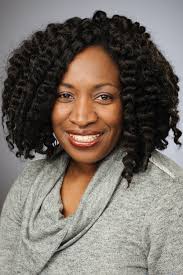

A native of Columbia, South Carolina, Audrey KS Lane is the founder and CEO of Lane Equity Enterprises, a management consulting firm with expertise in the areas of non-profit leadership, strategy, leadership development, talent pipeline development, and project management with a focus on understanding and implementing solutions that lead with equity, diversity, and inclusion. Most recently, Audrey is influencing the landscape of Charleston, SC’s public education system by co-founding E3 (Educate, Empower, and Elevate), an organization with an intentional focus on creating high quality educational options for Black and Brown students with the desires and needs of parents and families at the center of this work. Prior to launching Lane Equity Enterprises and E3, Audrey was the Chief of Access & Equity for the SC Public Charter School District (SCPCSD), where she co-facilitated the district’s first Access & Equity Audit of its school portfolio. Audrey also served as the Executive Director of the Royal Foundation, the 501(c)3 affiliate of the Royal Missionary Baptist Church of North Charleston.
Before joining the SC Public Charter School District, Audrey was the Deputy for Human Capital Development for the Charleston County School District (CCSD), where she was instrumental in laying the foundation of the district’s diversity, equity and inclusion work.
Prior to relocating to Charleston in 2008, Audrey was a Business Development & Commercial Coordinator within the U.S. Pipelines and Logistics Organization of BP North America, Product Development Leader with International Paper and began her career as a Mechanical Engineer with Xerox in a technical leadership program for women of color.
Audrey is a proud Mechanical Engineering graduate of Florida A&M University, earned a Master of Business Administration degree from DePaul University in Chicago, IL and is a 2010 graduate of the Broad Residency for Urban Education.
Although she is extremely dedicated and focused on the work that she’s been blessed to do-her greatest joy comes from being a wife, partner, and friend to Martin and the mother of Moses and Micah.
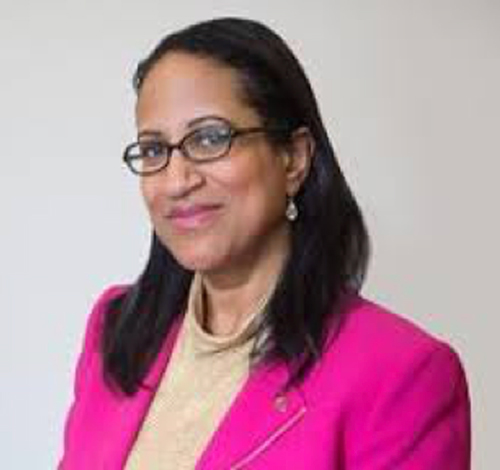

Amanda Lawrence is a change agent, known for developing creative strategies, building complex systems and executing large-scale collaborative efforts with integrity and accountability and through authentic engagement. Lawrence has served in the nonprofit sector for twelve years and serves as the Vice President of Community Impact at Trident United Way. There, she oversees an $8.6 million, Community Investments portfolio and three, collective Impact initiatives in TUW’s impact areas of focus in Education, Financial Stability and Health.
Lawrence’s career began in 1995, after graduating with a BS in Marketing from the University of South Carolina and joining a niche, communications and crisis relations firm owned by a SC State Senator. From there, she moved into branding and promotions, rising to a national branding agency that worked exclusively for the McDonald’s Corporation.
Five years after returning to SC and serving as a Sales Marketing Manager at a CBS television station affiliate, Lawrence made the transition to the Development office of a youth-focused, nonprofit that operated six diverse programs. From that role, she moved to Trident United Way, where she began serving as the Director of Financial Stability and later rose to the Vice President of Community Impact.
In 2011, Lawrence was recognized as one of the Charleston Regional Business Journal’s, Forty Under 40, for outstanding leadership in the Charleston business community. She is also a Riley Fellow and alumni of Furman University’s, The Riley Institute, Diversity Leaders Initiative, fall 2015 class. Lawrence holds an MBA from The Citadel, the Military College of SC, and is an adjunct professor in Webster University’s MBA program. Lawrence has three children ages, 28, 26 and 16 and three grandsons, ages 2 and 3.
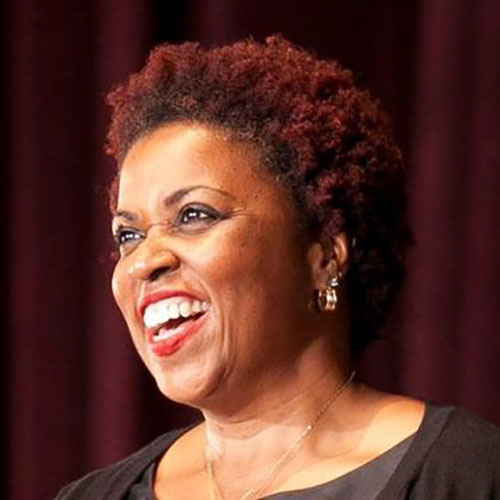

Board of Directors / Teaching Faculty
Patricia Williams Lessane is the Executive Director of the College of Charleston’s Avery Research Center for African American History and Culture. Dr. Williams Lessane is a cultural anthropologist whose focus areas include Pan African religious identity, Black feminist theory, and representations of Black life in popular culture. She earned a BA in English from Fisk University, a MALS from Dartmouth College, and a PhD in Anthropology from University of Illinois at Chicago. Before joining The College of Charleston, she was a faculty member at Roosevelt University, and a consultant for The Museum of Science and Industry in Chicago.
Since her arrival to Charleston in 2010, Dr. Lessane has emerged as a progressive and trusted voice in discussing race relations in the city. She has been featured on NPR, BBC, and in the New York Times, giving scholarly context to some of our most pressing issues. She is also currently co-executive producing a Julie Dash film on native South Carolinian Vertamae Grosvenor and her contributions to several key literary, cultural, and culinary movements of the twentieth century. Additionally, Dr. Lessane is writing a young adult novel that touches on race and class.
Patricia Lessane Named Director of Avery Research Center
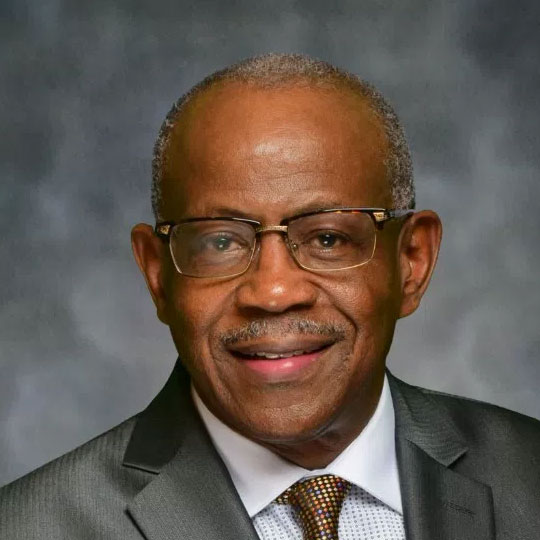

Teaching Faculty
Rev. Nelson B. Rivers, III is the Pastor of Charity Missionary Baptist Church in the Liberty Hill Community of North Charleston, SC and the Vice President of Religious Affairs and External Relations of the National Action Network since 2014. For almost 40 years he worked at every level of the NAACP and helped to elect more than 300 black officials in South Carolina. He was a lead organizer of the 2000 March on the Statehouse when 50,000 people marched on the state capital to demand the removal of the Confederate Battle Flag and he was a founding member of the Charleston Area Justice Ministry (CAJM) in 2011. He is a recipient of the Order of the Palmetto, the State of SC’s highest award for service.
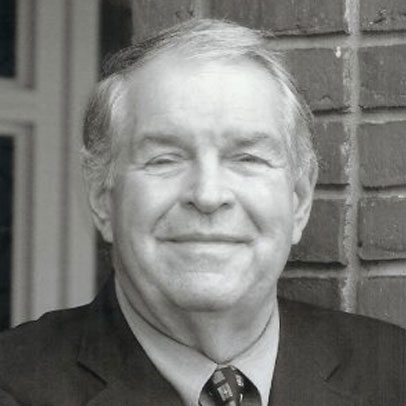

Teaching Faculty
Judge Alex Sanders is now a College of Charleston professor in the Department of Political Science after serving as the University's 19th President. A man of many talents, Sanders' job descriptions have also included Chief Judge of the SC Court of Appeals, state Legislator in the House and Senate, candidate for the US Senate, a soybean farmer, soldier, and even circus performer. As Andy Abrams, the former dean of the Charleston School of Law, told the State Newspaper in 2011: "Alex Sanders never fails to entertain, educate, and inspire."
